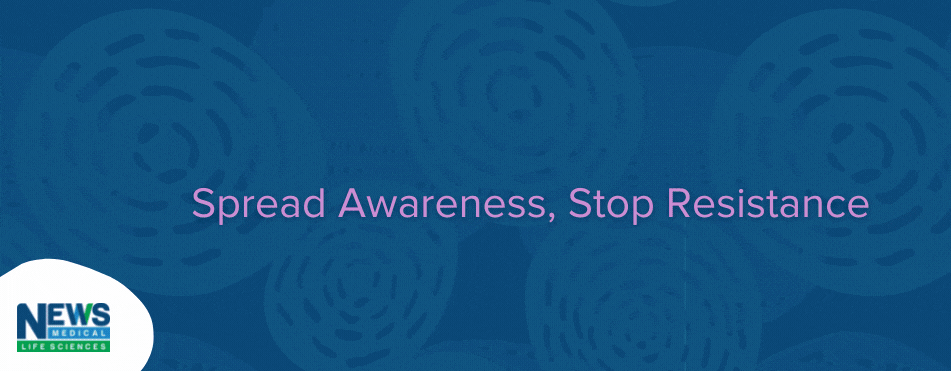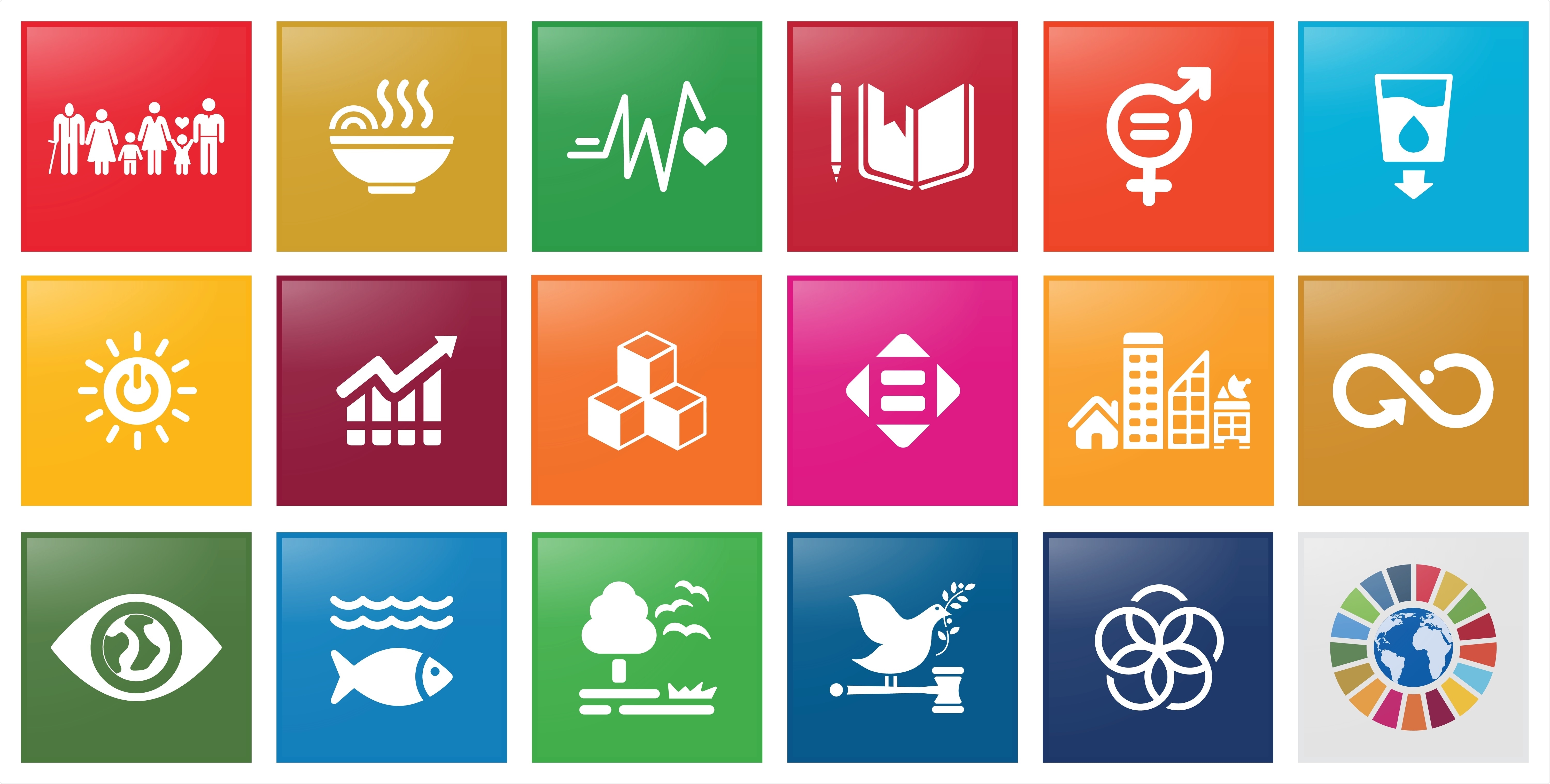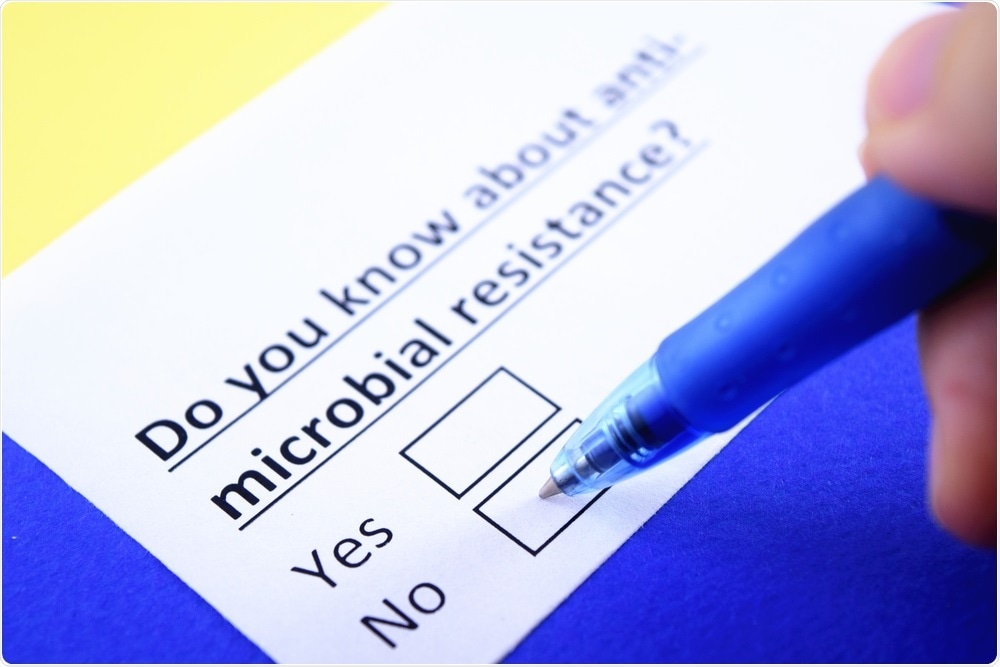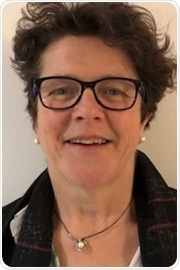My name is Liz Tayler. I was originally a UK public health physician and now I work for the World Health Organization (WHO).
As antimicrobial resistance (AMR) is something that is seen across sectors, it’s important we work with other organizations - namely the Food and Agricultural Organization (FAO), the Organization of Animal Health (OIE), and the United Nations Environment Program(UNEP) to tackle this issue on all fronts. The Secretariat is a virtual team based in WHO but with representatives from those organizations and I am the technical lead and Unit head for WHO.

Every year, you raise awareness for antimicrobial resistance, alongside the Food and Agriculture Organization of the United Nations (FAO) and the World Organisation for Animal Health (OIE). The theme for this year is ‘Spread Awareness, Stop Resistance’. What is the aim of this message, and as a global leader within science communications, how important is spreading awareness?
If you don't know you have a problem, then you're not going to do anything about it. If the public do not know that there is a problem with drugs not working any more, then they don't know why they should use antibiotics and other medicines with care. Too often, people just expect to have antibiotics given whether they need them or not. They won't put pressure on their government to do things differently. Therefore, it is absolutely vital they understand what the problem is and how it affects them and their families.
The scientific community needs to lead that. One of the biggest problems we have with AMR is the language difficulty and policymakers don't really understand about microbes and bacteria and viruses and what the difference is. Policymakers are not used to talking about drugs and bugs with difficult long names and we need very strong advocates from the scientific community and to build scientific literacy about infection.
-1-1.gif)
Image Credit: World Health Organization
The continuing overarching slogan for World Antimicrobial Awareness Week (WAAW) is ‘Antimicrobials: Handle with Care’. What is meant by this message and what more can people do to handle antimicrobials with care?
I think we need to think about antibiotics and other medicines as a very precious resource and a resource that we need to look after so they carry on being effective for future generations. At the moment, not only is the resistance rising within all the drugs we have, but the pipeline for new antibiotic development is pretty nearly empty. So we have to focus on using them only when we really need them.
It is also still really important that people have access to the right antibiotic when they need it, and that's not the case in large parts of the world.
Antibiotics must be used to treat bacterial disease in the right way. They're not appropriate for treating coughs and colds and other viruses; they're not appropriate to be given to animals to make them grow faster, and it's not appropriate to spray them indiscriminately on plants. These are all things that happen in quite a widespread way. The more we use these drugs, the more resistance develops and they don’t work for any of us anymore. So every time we use them, we should be making sure that there's a real benefit.
What is antimicrobial resistance (AMR) and how does it occur? Are there any factors that accelerate the spread of AMR? If so, what are they?
Resistance is a natural phenomenon, but when bacteria are exposed to antibiotics, or parasites to antiparasitics, viruses to antivirals, there is a natural selection pressure. It's Darwinism. The sensitive bugs will die out, so the resistant bugs have a comparative advantage, they flourish, grow, dominate, and spread.
With bacteria, there's more of a problem because you have resistant plasmids, which can then transfer between species.
The more we use them, the more rapidly we will lose them."
Every time bacteria are exposed to antibiotics, there is a risk that resistance develops. The more we use them, the more rapidly we will lose them.
AMR is a complex problem as it affects not only human health but animal, plant, and environmental health also. Because of this, why is it critical that we adopt a One Health approach to tackle AMR and help achieve the Sustainable Development Goals (SDGs)?
AMR is one of the complex problems that the SDGs were devised to address. Increasingly the challenges that we are facing in the twenty-first century cannot be addressed by one sector alone.
In this case, we have collectively got into a mess by using antibiotics as a substitute for good hygiene, good diagnosis, and good management, not only in human health but also in animal health and food production. We are also spraying an extraordinary amount of antibiotics on crops contaminating the environment.
This means we can only solve the problem when those responsible for human, animal, plant, and environmental health all work together. It is also important we don't get into a blame game.
We have got into this mess together and we need to collectively get out of it. That’s why we collaborate and the SDGs are all about partnership. We are delighted that there are now two indicators related to AMR in the SDGs. One is about bloodstream infections and one is about the availability of antibiotics. We hope that it means that country governments and development agencies now take it more seriously and ensure that critical actions are built into plans and budgets.
Another really important thing is that a lot of what we are saying that needs to happen is actually good public health and good animal health. It's important, not only for AMR but for pandemic preparedness. It is important for health security and for achieving universal health coverage:
"Doing it right actually has multiple benefits."

Sustainable Development Goals. Image Credit: MintArt/Shutterstock.com
We have collectively got into this mess together and we need to collectively get out of it together. That’s why we collaborate and the SDGs are all about partnership."
Antimicrobial resistance is continuing to increase worldwide, threatening global health. What more can stakeholders, policymakers, health care providers, and the general public do to spread awareness about AMR, and how will this help the WAAW 2021 campaign?
Awareness is the start but then people have to act and do something about it. What we need are much better systems to prevent, diagnose, and manage infection. Policymakers need to take that seriously and hold people accountable to ensure that those systems are built, resourced, and function properly.
We need to get much better data because, in a lot of the world, we actually don't know the extent of the problem.
We don't know either how many antibiotics are being used, or what the resistance patterns are.
If you don't know what the problem is, then (A) it's not a political priority, and (B) you can't really manage it.
We also need to get much better at making sure that the right medicines are available when they're needed. Health professionals also need to know when to use them. Vets need to know when to use them and when not to use them, and we need to get the message across that a cough, cold, or sniffle can be treated very well with Paracetamol. Antibiotics are not going to help.
That’s why it’s so vital to spread awareness - the theme of this year’s World Antimicrobial Awareness Week.
People should be saying, "I don't want my meat full of antibiotics, thank you. I don't want my meat reared in a fashion where they are pumped full of antibiotics .” There has been good consumer pressure, so even the big chains are starting to cut down the use of antibiotics. In Europe and other countries of the world, we are really seeing a drop in the use of antibiotics in food production. But people need to be informed to make this sort of change happen.
What other benefits will tackling AMR have, not only for global health but to the economy?
The World Bank has done some estimates on the costs of inaction.
The big costs are really surrounding productivity. There is a huge impact on women, who are predominantly the carers for people when they are sick. And health cost system costs go up.
Livestock health and productivity goes down and that impacts trade as well. Also, environmental contamination is a significant risk that comes with its own associated costs.
World Antimicrobial Awareness Week 2021
Alongside World Antibiotic Awareness Week, what other ongoing initiatives are the WHO involved in regarding AMR?
There is a global action plan for AMR that was developed six years ago now which all 193 WHO member states are signed up to. WHO and the Tripartite support countries in developing and implementing their own national action plans, and then we monitor that.
The WHO has a political and a technical role.
At a political level, it is continuing to advocate the importance of AMR. We've set up a global leaders group chaired by the prime ministers of Barbados and Bangladesh, and it's got acting ministers and thought leaders trying to keep the momentum alive and ensuring that action is intensified at all levels. That political motivation is also establishing a partnership platform where again, civil society, academics, everybody can engage.
At a technical level, the first pillar of the global action plan for AMR is about awareness and education, so we support work in that. There's a lot of work on surveillance and building laboratory systems and building the evidence-based on where we are. WHO has established GLASS - the global antimicrobial surveillance system for human health. Countries are encouraged to submit their data on resistance and how many antibiotics they're using.
We also work to prevent infections occurring. There are simple ways to do this like having water and sanitation in health facilities. But over a third of the world’s health facilities don't have clean running water. You can't prevent infections if you can't wash your hands and you haven't got access to water.
Immunization against disease is another. Antibiotics are not effective against flu, but immunization can prevent it. The pneumococcal vaccination is also really important in preventing infections and the need for antibiotics in kids. So ensuring immunization and basic infection prevention and control measures go to scale are really important components of countries responses.
We have also developed a programme called AWARE, which is a way of helping countries categorize and use antibiotics more systematically.
A stands for ACCESS medicines, which be available for everybody when they need first-line treatment.
W stands for Watch and R for Reserve.
These categories are the ones we have to be much more careful with in case resistance develops - they are the antibiotics we really need to just use with more specialized supervision because they are drugs of last resort. If they don’t work any more, there is nothing else we can use.
We also work on research and development: trying to shape the research and development agenda around resistance. This involves identifying what are the priority pathogens that we really want companies and public money to be invested in, and monitoring how the pipeline is developing.
Do you hope that with continued advancements within science and medicine, we can continue tackling AMR and one day see a world without resistance?
It’s hard to imagine a world without any drug resistance because it has been building up for so long.
But there has been significant action in a number of countries including the UK to try and address resistance and resistance patterns. Here, they are not going up and they are much lower than in other parts of the world, but it's not going to go away any time soon without more advancements in new medicines, new diagnostics, and new vaccines. And more awareness and more discipline in how we use antimicrobials.

Image Credit: Yeexin Richelle/Shutterstock.com
Is there anything else you would like to mention?
I think the one important point is that there is a lot of discussion and concern in Europe and North America, but the resistance is going to be much more of a risk in low and middle-income countries.
We know that the rates of infection are much higher, but what data we have suggests rates of resistance are also higher and rising more rapidly. These are the countries that have got very weak, or much less resilient, health systems, and they have got much less money to buy more expensive drugs. So the impact of resistance on health systems in emerging economies is going to be a lot greater. It is a real priority for us to help those middle-income countries to get their systems under control.
These countries have got huge numbers of other problems and very little resource AMR is a hidden, silent, pandemic. I lived a lot of my time in Tanzania and Nigeria, and nobody knew if they were dying because of antimicrobial resistance. Even in developed countries, people die of an infection and even if the problem was the resistance this is rarely documented, so the awareness is much lower. It's really, really important that people become aware of just how big a problem it is, in all countries, but particularly in those lower and middle-income countries where it is not yet recognized.
Where can our readers find more information about AMR and get involved in WAAW 2021?
World Antimicrobial Awareness Week 2021 (who.int)
Information on AMR and the SDG: Antimicrobial resistance and the United Nations sustainable development cooperation framework: guidance for United Nations country teams (who.int)
About Dr. Elizabeth Tayler
Dr. Liz Tayler works in Tripartite Joint Secretariat for AMR, in WHO, supporting collaboration between FAO OIE and WHO at global, regional and country levels, She is working on clarifying the roles on multilateral agencies and banks in addressing AMR, as well as setting up a mulitpartner trust fund to support AMR action.
Prior to this she used to lead the team in WHO that supports countries to develop and implement national action plans for AMR, and developed the tripartite M and E Framework.